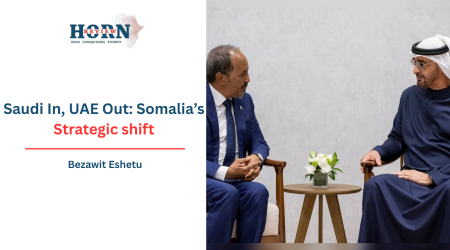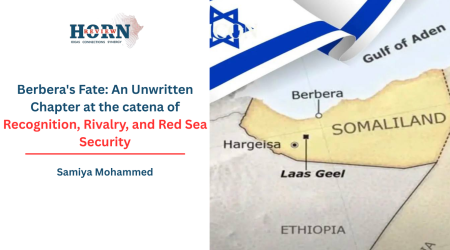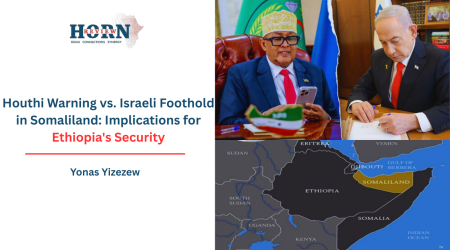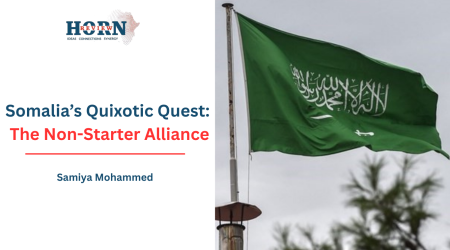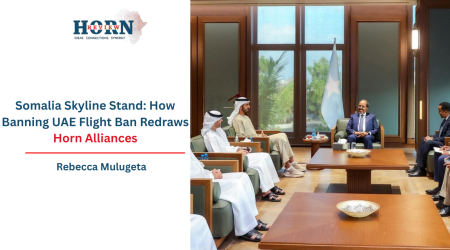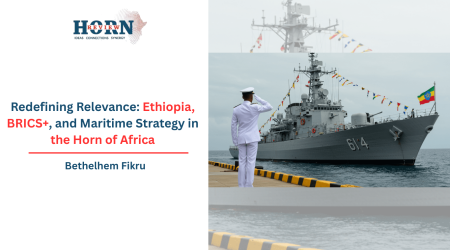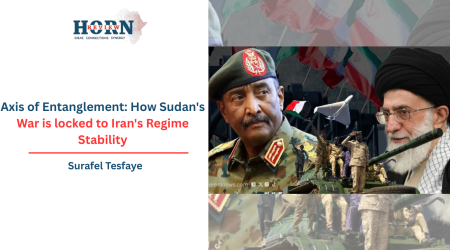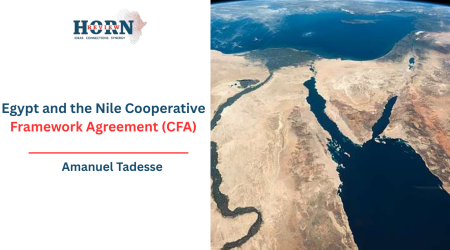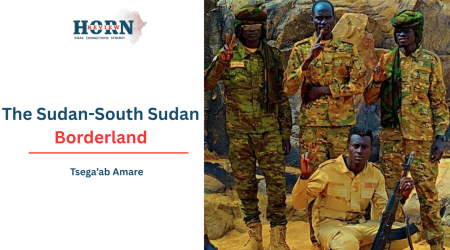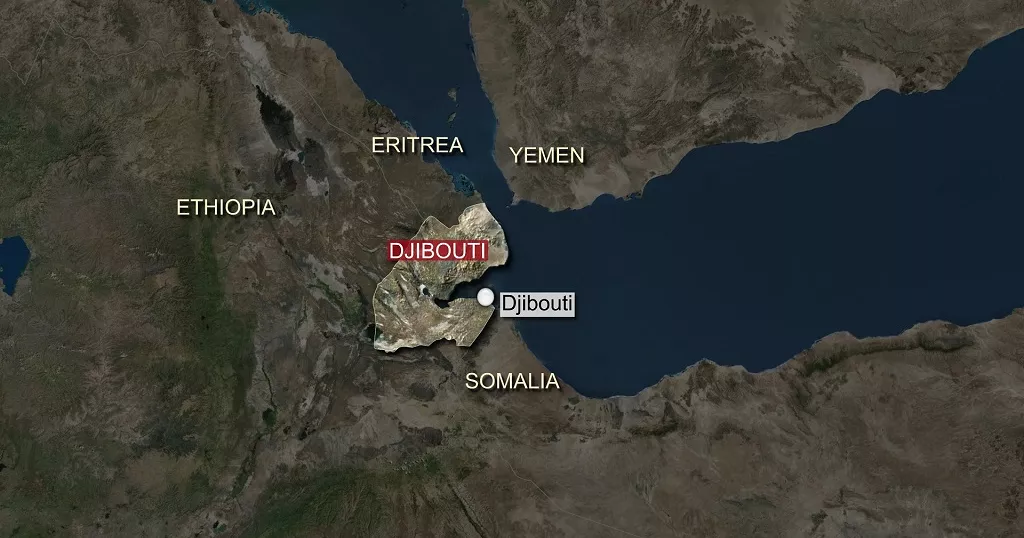
3
Jul
The Harbor’s Hourglass: Djibouti’s Point of No Return vs. Qatar’s Strategic Rebound
The acrid smoke had scarcely dissipated above Qatar’s Al Udeid Air Base when civilians cautiously emerged from shelter, momentarily disoriented by the unsettling return of quotidian normalcy. Though eighteen Iranian missiles had been successfully intercepted – one crashing into the desert with a tremor that momentarily jarred the nation – the calm that resumed was illusory. Beneath the facade of routine, a far more disquieting truth lingered: in the hyper-volatility of the Red Sea corridor, no polity remained immune to the centrifugal pull of regional conflict.
While Qatar’s airspace flared with hostile fire, a separate theatre of tension simmered some 2,000 miles west. In the Horn of Africa, a strategic powder keg grows ever more volatile. Eritrean forces remain ensconced in the disputed Ras Doumeira peninsula, Ethiopian cargo vessels idle at the periphery of Barbera’s choked harbors, and the dormant spectre of Assab port permeates every regional communiqué. The recent Qatar-Iran-Israel exchange was not an outlier – it was a portent.
Qatar’s experience encapsulates the perilous fragility that separates geopolitical stability from systemic rupture. When Tehran launched its barrage at Al Udeid – the largest U.S. military installation in the Middle East – Doha’s urban pulse was arrested momentarily. Educational institutions shuttered, airspace was suspended, and expatriate communities sheltered indoors as missile defense systems were rapidly activated. Yet within mere hours, normal life resumed with unsettling efficiency: wedding halls reopened, children played under the filtered spray of splash pads, and cinema marquees resumed their programming – with emergency exit instructions now prominently displayed.
This swift return to equilibrium belies an underlying structural vulnerability. Both Qatar and Djibouti serve as strategic host nations for foreign military powers – Qatar accommodating the United States, and Djibouti simultaneously hosting France and China – while attempting to navigate the complex geopolitical frictions among regional hegemons. For Qatar, these include Saudi Arabia and Iran; for Djibouti, Ethiopia and Eritrea. In essence, both states are geographic pivots held captive by the ambitions of larger, more bellicose neighbors.
Djibouti’s 110-kilometer boundary with Eritrea remains a scarred frontier – a testament to unresolved historical antagonisms. In 2008, Eritrean troops unilaterally seized Ras Doumeira, entrenching their position and fortifying surrounding highlands. Djibouti condemned the action as an incursion, while Eritrea dismissed the allegations outright. The ensuing clashes led to the deaths of 44 Djiboutian soldiers. A ceasefire, brokered by Qatar in 2010 and enforced by the deployment of 700 peacekeepers, provided a temporary buffer, yet Asmara never fully relinquished its territorial claims. With Doha now preoccupied and Eritrean President Isaias Afwerki reinvigorating his military posture, that buffer has all but evaporated. Today, Djibouti’s Foreign Ministry reports Eritrean drone activity along the northern frontier – an ominous echo of Iranian reconnaissance over Al Udeid.
Ethiopian Prime Minister Abiy Ahmed’s pronouncement that Red Sea access constitutes an “existential imperative” was soon followed by troop deployments near the Eritrean border and a contentious port agreement with Somaliland – a move that fractured Addis Ababa’s relations with Mogadishu and precipitated a new security pact between Eritrea and Egypt. Each day routed through Djibouti’s ports accrues an estimated $2.7 million in fees, making Ethiopia’s dependency a strategic liability. With Eritrea now mobilizing reservists under the age of 60 and Ethiopia amassing heavy armor near Zalambessa, the region stands poised on a precipice uncannily reminiscent of Qatar’s own prelude to confrontation – an escalation primed to exploit strategic distraction.
The analogy to Qatar thus sharpens. Just as Tehran orchestrated its assault amid the din of U.S. electoral politics, Eritrea and Ethiopia maneuver while global focus is trained elsewhere – on Gaza, Ukraine, and Taiwan. Ethiopia’s recent diplomatic overtures regarding Assab – Eritrea’s southern port – herald a potential endgame. A 1949 U.S. memorandum had once recorded Italy’s support for ceding Assab to Ethiopia, a proposal rendered null upon Eritrea’s independence in 1993. A forced or coerced reclamation would simultaneously achieve a long-coveted Ethiopian aspiration and cripple Eritrea’s maritime economy.
The stakes are compounded by the interdependence of infrastructure and security. The $550 million U.S.-backed Lobito Corridor, connecting Zambia’s mineral wealth to Angola’s coast, exemplifies the increasing alignment between logistics and geopolitical vulnerability.
Consider the consequences of a renewed Eritrea-Ethiopia conflict flaring in Ras Doumeira. Djibouti’s ports would instantly become chokepoints, with maritime traffic diverted to Mombasa or Port Sudan. Insurance premiums would surge, Ethiopian factories would grind to a halt, and regional food imports would face debilitating delays. The memory of a single grounded vessel paralyzing global supply chains in 2021 remains instructive. A targeted military strike on Berbera or Doraleh could precipitate cascading humanitarian and economic catastrophes.
Qatar’s successful mediation in 2010 was predicated upon a unique confluence of assets: financial leverage, perceived neutrality, and an unrelenting commitment to shuttle diplomacy. That model now appears frayed. Qatar is currently absorbed in mediating Gaza ceasefires and recalibrating intra-Gulf relations; the United States, preoccupied with Taiwan and the war in Ukraine. Meanwhile, Eritrea strengthens ties with Moscow and Cairo, and Ethiopia deepens its engagements with Abu Dhabi and Ankara. Into this widening vacuum, the potential for strategic miscalculation grows dangerously pronounced.
In Qatar, the tenuous ceasefire with Iran and Israel is sustained less by mutual confidence than by deterrence – enforced through the omnipresence of U.S. naval assets tracking missile systems in real time. No such fail-safe exists for Djibouti. France maintains a military base there, yet its 1,500 troops are optimized for counterterrorism, not conventional interstate warfare. The African Union’s appeals for dialogue echo faintly in the face of Eritrea’s historic disregard for international resolutions.
Qatar’s resilience in the wake of missile attacks illuminated an essential paradox: recovery is feasible, yet prevention remains elusive. Djibouti, by contrast, may not be so fortunate. Its $3.6 billion economy – predicated on the operation of ports, railways, and customs tariffs – is inextricably linked to a peace architecture now abandoned by its erstwhile guarantor. As global powers avert their gaze, the hourglass narrows for a harbor that has long been the hinge of Africa’s geopolitical balance.
By Samiya Mohammed,Researcher,Horn Review

